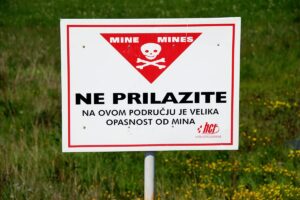In Kotor, Montenegro, leaders from the Western Balkans and the European Union convened for a crucial summit to deliberate on the EU Growth Plan for the Western Balkans, a strategic initiative poised to fast-track the region’s socioeconomic alignment with the EU.
The summit, themed “One Region, Common Vision,” was held on Thursday amid robust international presence, underscoring a pivotal moment for regional integration efforts.
The fund, comprising €2 billion in grants and €4 billion in favourable loans, is conditional on the implementation of comprehensive reforms, particularly in upholding democratic mechanisms, rule of law, and fundamental rights.

Significant emphasis during the summit was placed on the necessity for Serbia and Kosovo to engage constructively in normalizing relations, as stipulated by the Ohrid Agreement and its Implementation Annex, along with previous accords from the Brussels dialogue.
The EU Growth Plan, recently approved by the European Commission and the EU Council, earmarks a €6 billion financial package to bolster reforms and development in the region from 2024 to 2027
The summit’s inaugural session was graced by a host of regional leaders, including Borjana Krišto, Prime Minister of Bosnia and Herzegovina; Albin Kurti, Prime Minister of Kosovo; Edi Rama, Prime Minister of Albania; Aleksandar Vučić, President of Serbia; and Talat Džaferi, Prime Minister of North Macedonia. Oliver Varhelyi, European Commissioner for Neighbourhood and Enlargement, and James O’Brien, Assistant US Secretary of State for European and Eurasian Affairs, also played prominent roles.

Borjana Krišto highlighted the unified European journey of all ethnic groups in Bosnia and Herzegovina, expressing hope for regional cooperation to achieve common goals.
Edi Rama praised the progress since their last meeting in Skopje and reiterated Albania’s readiness for the next steps.
Kosovo’s Prime Minister, Albin Kurti, used his address to discuss the broader implications of the war in Ukraine on European security, reaffirming Kosovo’s pro-European stance.
Aleksandar Vučić of Serbia conveyed a mixed sentiment, appreciating the financial support but emphasizing the greater importance of structural reforms over monetary assistance. He also speculated that the Western Balkan countries might not join the EU before Ukraine, predicting a potential six-year wait and voicing the nuanced popularity of the EU in Serbia.
The summit discussions extended beyond high-level political dialogue, focusing on tangible impacts on the lives of ordinary citizens and addressing their problems, as well as promoting economic development across the region.
This gathering not only serves as a testament to the EU’s renewed commitment to the Western Balkans but also as a platform for these nations to align their policies more closely with EU standards, facilitating a smoother eventual integration into the Union.







